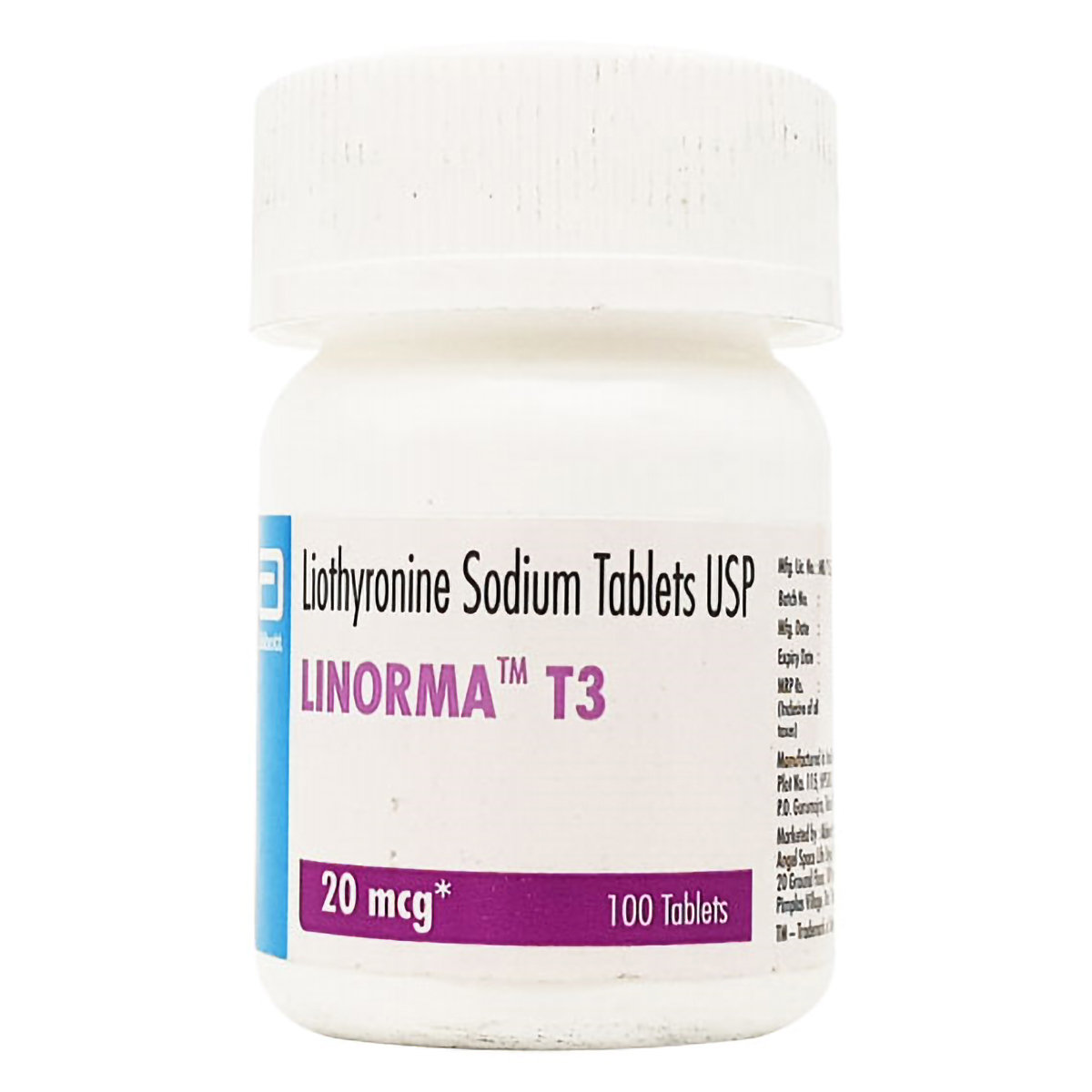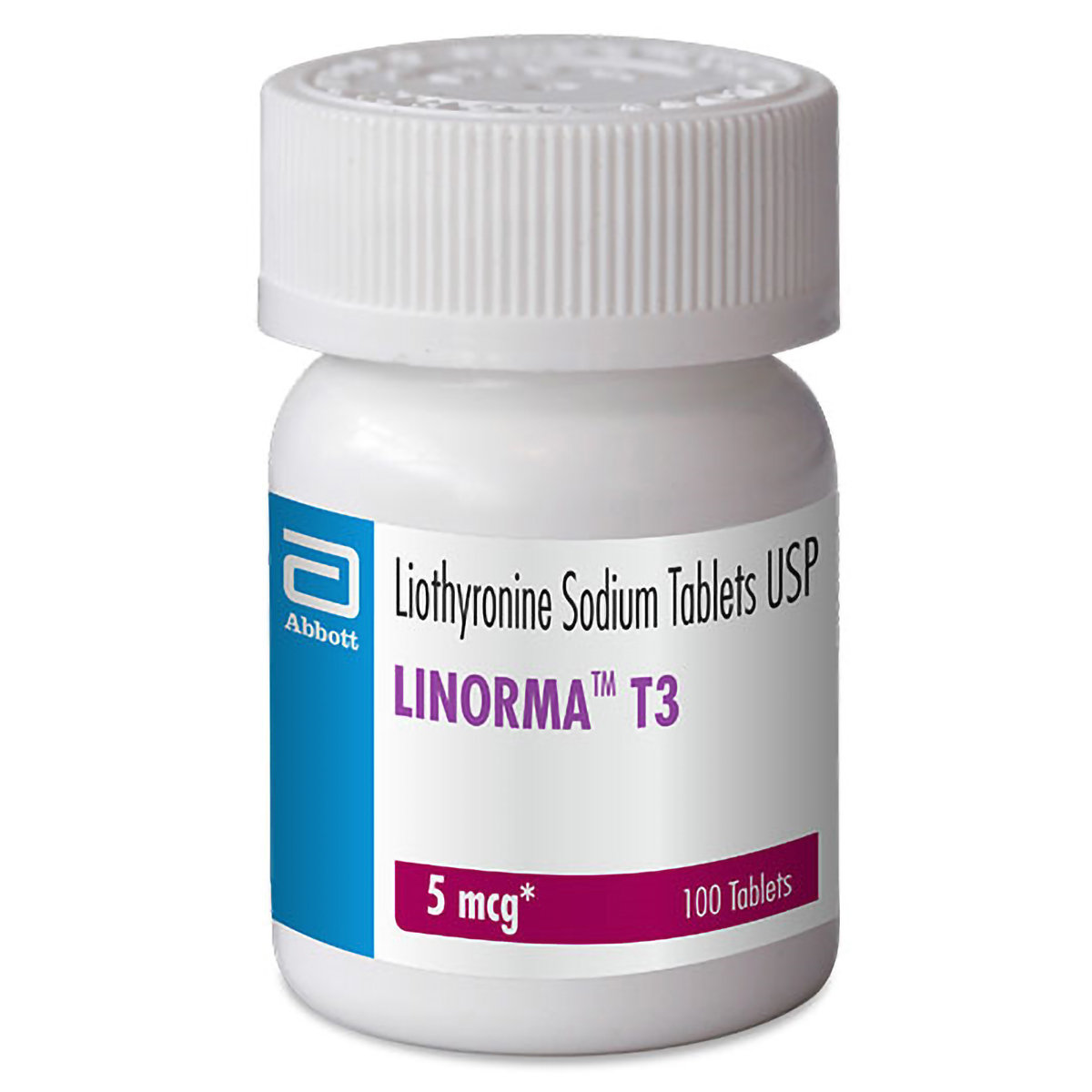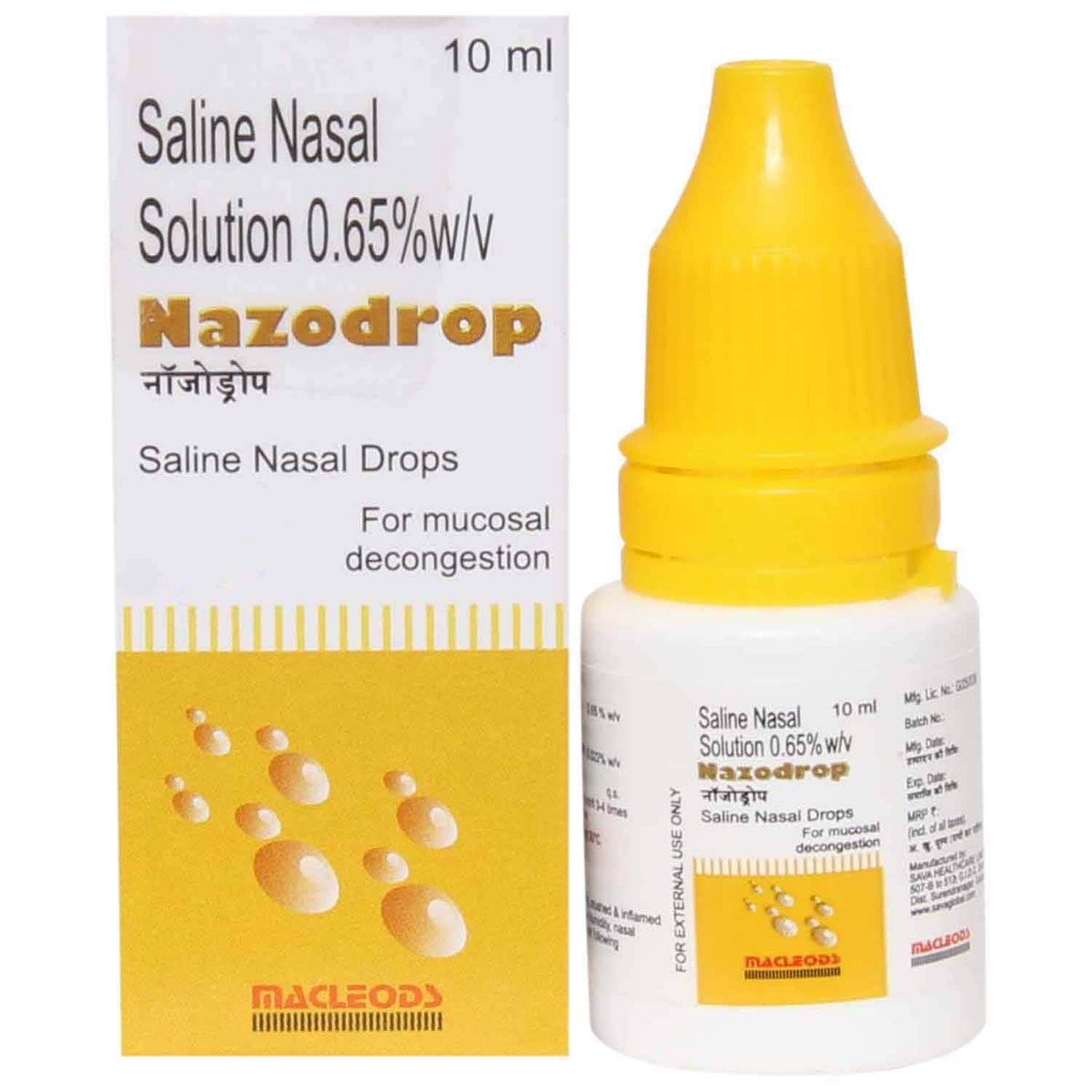Liothyronine Sodium
About Liothyronine Sodium
Liothyronine Sodium belongs to a class of drugs called synthetic thyroid hormones used to treat hypothyroidism (underactive thyroid gland). It can be used as an adjunct to surgery and radioiodine therapy in managing well-differentiated thyroid cancer. On the other hand, it can used as a diagnostic agent in the Thyroid Suppression Test. Hypothyroidism is a chronic condition in which the thyroid gland (located below the throat in the neck) cannot produce enough thyroid hormone.
Liothyronine Sodium contains Levothyroxine that replaces thyroxine (a thyroid hormone) naturally produced by the thyroid gland. Thus, it restores the levels of thyroid hormones.
Take Liothyronine Sodium as prescribed by your doctor. You are advised to take Liothyronine Sodium for as long as your doctor has prescribed it for you based on your medical condition. In some cases, you may experience arrhythmias, myocardial infarction, dyspnea, headache, nervousness, irritability, insomnia, tremors, muscle weakness, increased appetite, weight loss, diarrhoea, heat intolerance, menstrual irregularities, and skin rash. Most of these side effects of Liothyronine Sodium do not require medical attention and gradually resolve over time. However, if the side effects persist or worsen, please consult your doctor.
Liothyronine Sodium is not recommended to take if you are allergic to liothyronine sodium or any of the other ingredients of this medicine, if you have angina (chest pain when exercising) or conditions affecting your heart or circulation or if you are suffering from thyrotoxicosis, (illness due to over activity of the thyroid gland). Liothyronine Sodium Tablets may raise blood sugar levels, so if you have diabetes, please inform your doctor. Your doctor may check blood glucose levels during therapy. Before taking the Liothyronine Sodium, let your doctor know about all your medical conditions, sensitivities, and medications you are using. Also, inform your doctor if you are pregnant, planning to become pregnant, or breastfeeding. Liothyronine should not interfere with your ability to drive or use machinery.
Uses of Liothyronine Sodium
Medicinal Benefits
Liothyronine Sodium contains Levothyroxine, which belongs to a class of drugs called synthetic thyroid hormones used to treat hypothyroidism (underactive thyroid gland). It can be used as an adjunct to surgery and radioiodine therapy in managing well-differentiated thyroid cancer. On the other hand, it can used as a diagnostic agent in the Thyroid Suppression Test. Liothyronine Sodium that replaces thyroxine (a thyroid hormone) naturally produced by the thyroid gland. Thus, it restores the levels of thyroid hormones.
Directions for Use
Storage
Side Effects of Liothyronine Sodium
- Arrhythmias (irregular heartbeat)
- Myocardial infarction
- Dyspnea (Shortness of breath)
- Headache
- Nervousness
- Irritability
- Insomnia
- Tremors (Involuntary shaking or movement)
- Muscle weakness
- Increased appetite
- Weight loss
- Diarrhea
- Heat intolerance
- Menstrual irregularities
- Skin rash
Drug Warnings
It is recommended not to be used to suppress benign thyroid nodules and nontoxic diffuse goitre in iodine-sufficient patients and not indicated for treating hypothyroidism during the recovery phase of subacute thyroiditis. Also, inform your doctor if you have specific sensitivities to medicines and foods. Inform your doctor if you have uncorrected adrenal cortical insufficiency before taking the Liothyronine Sodium. If you are pregnant, planning to become pregnant, or breastfeeding, use Liothyronine Sodium under the doctor's supervision or as directed by the doctor.
Drug Interactions
Drug-Drug Interactions: No major interactions were found or established.
Drug-Food Interactions: No major interactions were found or established.
Drug-Disease Interactions: Liothyronine Sodium may interact with various disease conditions, including adrenal insufficiency, cardiovascular disease, and thyrotoxicosis (having high thyroid hormone levels in your body).
Drug-Drug Interactions Checker List:
Safety Advice

Alcohol
cautionNo interaction was found. However, it is advisable not to take or limit alcohol as a precautionary measure.

Pregnancy
cautionPregnancy may require the use of higher doses of thyroid hormone. So, inform your doctor if you are pregnant or breastfeeding or are thinking of becoming pregnant while taking Liothyronine Sodium.

Breast Feeding
cautionThe developmental and health benefits of breastfeeding and the mother’s clinical needs should be considered. So, let your doctor know if you are a nursing mother before taking Liothyronine Sodium; your doctor will decide whether breastfeeding mothers can take Liothyronine Sodium.

Driving
safe if prescribedLiothyronine Sodium usually does not affect your ability to drive or operate machinery.

Liver
safe if prescribedLimited information was available about using Liothyronine Sodium in patients with liver disease. Inform your doctor before receiving the Liothyronine Sodium if you have a history of liver diseases/conditions. Your doctor will prescribe only if the benefits outweigh the risks.

Kidney
safe if prescribedLimited information was available about using Liothyronine Sodium in patients with kidney disease. Inform your doctor before receiving the Liothyronine Sodium if you have a history of kidney diseases/conditions. Your doctor will prescribe only if the benefits outweigh the risks.

Children
cautionLimited information regarding using Liothyronine Sodium in children is available, so please consult a doctor if you have any concerns.
Habit Forming
Diet & Lifestyle Advise
- Iodine, zinc, and selenium are beneficial for people with hypothyroidism. However, avoiding iodine and selenium supplements is best unless your doctor advises you to take them.
- In hypothyroidism, usually, there is a loss of calcium (hypocalcemia) and Vitamin D in our body. In such a case, people with hypothyroidism should opt for calcium-enriched foods.
- Eat more protein as it may help boost your metabolism, as people with hypothyroidism usually have a slower metabolism.
- Do regular yoga and aerobics exercises to boost your metabolism.
- Eat more vegetables, fruits, and lean meats. These foods are low in calories and may help prevent weight gain.
- Avoid taking Goitrogens (agents that interfere with the thyroid gland's normal function), which generally include soy foods (tofu), cabbage, broccoli, kale, cauliflower, spinach, sweet potatoes, cassava, peaches, strawberries, millet, pine nuts, peanuts, etc.
Patients Concern
Disease/Condition Glossary
Hypothyroidism: Hypothyroidism is also known as underactive thyroid, a chronic condition when the thyroid gland does not make enough thyroid hormones to meet your body’s needs. When there is a low level of thyroid hormones, our body’s functions and metabolism slow down. Symptoms of hypothyroidism include tiredness, increased sensitivity to cold, constipation, dry skin, unexplained weight gain, puffy face, hoarseness of voice, and muscle weakness. There may be a loss of Calcium and Vitamin D in some cases of hypothyroidism.
FAQs
Liothyronine Sodium contains Levothyroxine that replaces thyroxine (a thyroid hormone) naturally produced by the thyroid gland. Thus, it restores the levels of thyroid hormones.
Liothyronine Sodium should be used with caution in diabetic patients as it may increase blood sugar levels. Therefore, inform your doctor if you have diabetes so the dose may be adjusted appropriately.
Menstrual irregularities may occur during the first few months of treatment. This effect is usually temporary and resolves over time. If this persists or worsens, tell your doctor for further treatment.
You are not recommended to take Liothyronine Sodium if you are diagnosed with adrenal insufficiency.
Taking vitamin supplements along with liothyronine may reduce liothyronine effectiveness. You should wait at least 4 hours between taking liothyronine and vitamin supplements.









